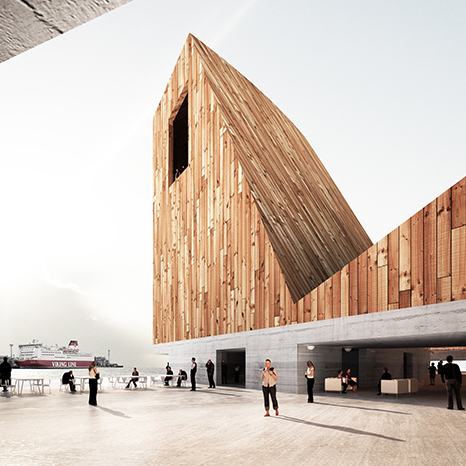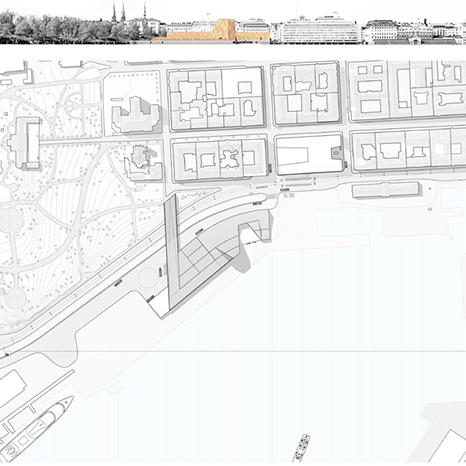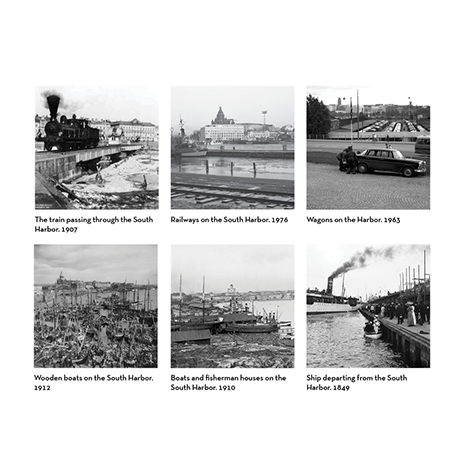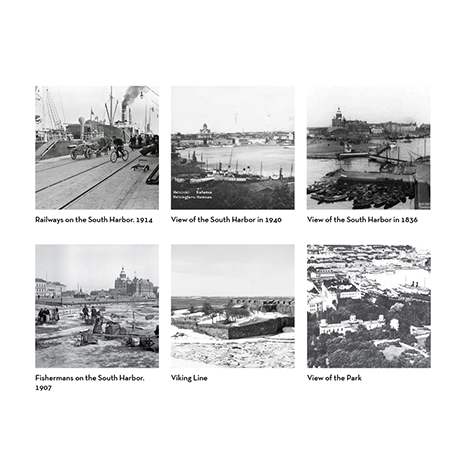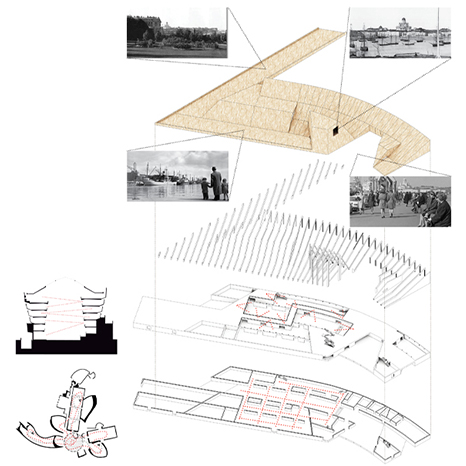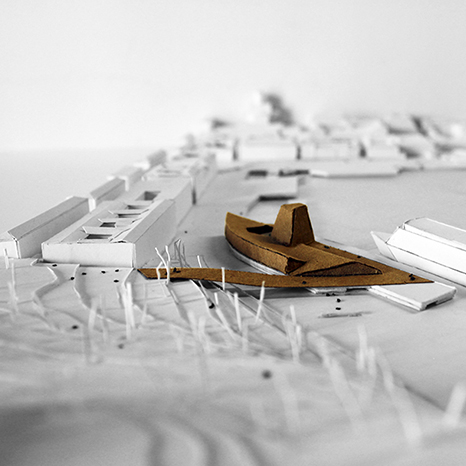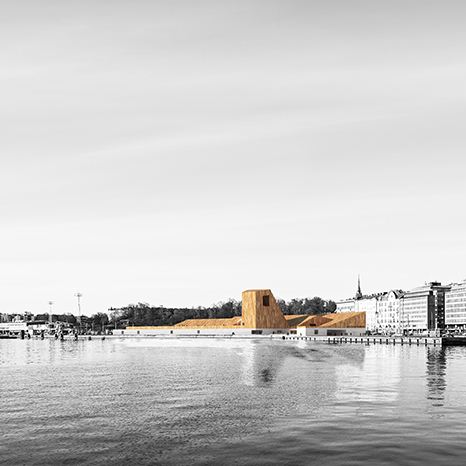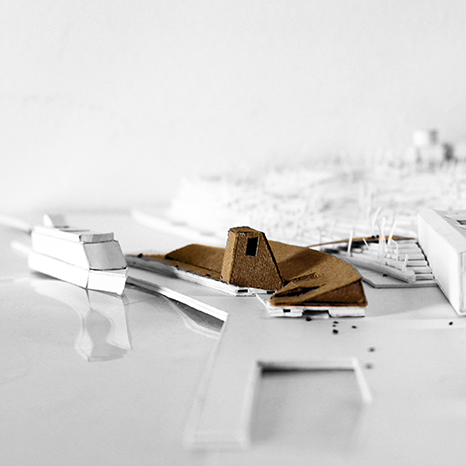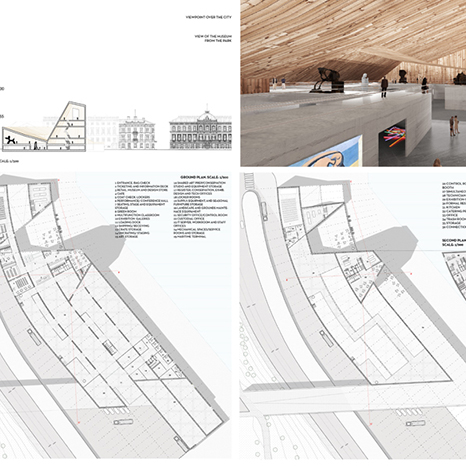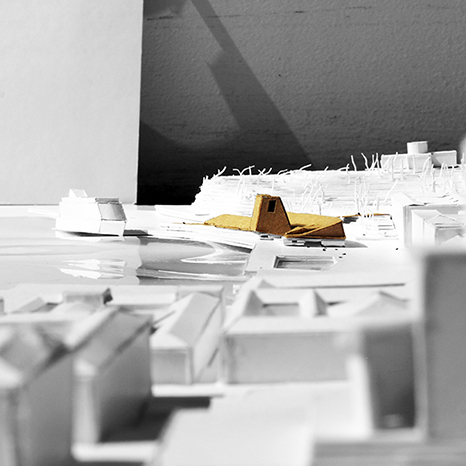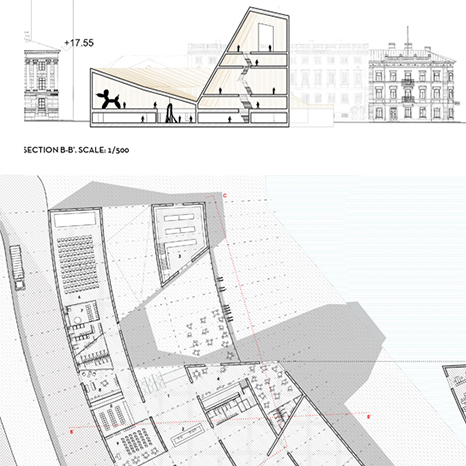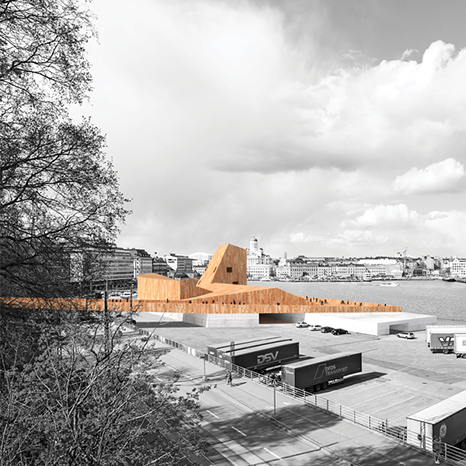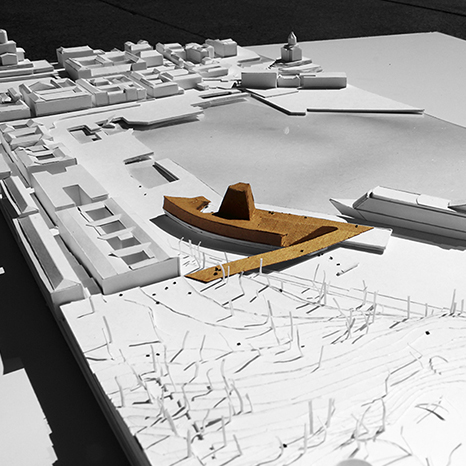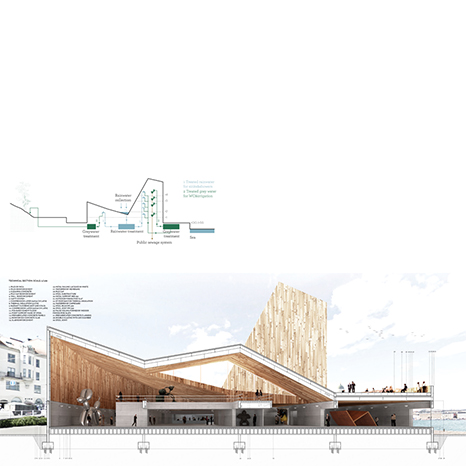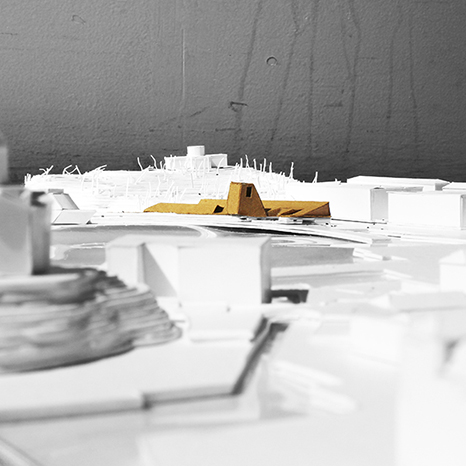MADERA Y MAR
Concurso Internacional para el Guggenheim Helsinki. Helsinki. Finlandia.
AUTORES: Juan Antonio SERRANO GARCÍA y Paloma BAQUERO MASATS
COLABORADORES: Helder Jesus, Marilisa Baptista, Ziwei Li.
TIPOLOGÍA: Museo y espacio público asociado entre el mar y un parque de Helsinki.
AÑO: Septiembre 2O14
RESUMEN DE LA MEMORIA EN INGLÉS:
Urban structure. Views. Relationship with the water.
Traditionally, Helsinki streets terminating at the waterfront have a view of the sea. This is why the New Guggenheim building is aligned to Eteläinen Makasiinikatu Street, so the view of the sea from is possible and not to obscure views of and from the Palace hotel building.
The project is intended as an urban artefact itself, providing a platform to look over the sea, enjoying a close relationship to the water, and an elevated viewpoint of the city on the tower, as views from the building are considered as important as those to the building from the surrounding city.
The building is designed in relation to its context, not only following the lines of the site but also modulating its height according to the nearby buildings and the hilltop of the park.
Pedestrian link with the park and the city
Part of the deck of the museum will be used as part of the pedestrian route that connects it with the park, producing a new relation between it and the port by giving continuity to the wood cover of the building across the street.
History of the South Port. Infrastructures and architecture.
The South Port was a big infrastructure of transportation of goods up to not so long time ago. There were plenty of railways, as it can be observed in the historical photos. The structure of the project follows these old railways, using them to organize the program. The ground floor belongs then to the world of the infrastructures and the memories linked to the site, being made of concrete and offering the support for all the building.
The activities of the museum are developed under a big wooden roof, highlighting the legacy of Finnish architecture and reinterpreting its tradition in a way that the building could be intended as timeless, belonging to both past and future and closely linked to the site and to the Nordic traditional architecture.
Itineraries. The other Guggenheim museums.
It is intended that the museum is able to connect ideas, people, and cultures, providing civic space close to some of Helsinki’s great public buildings, to be enjoyed by local residents and visitors. The elevated platform over the sea has been design with this aim, to provide a space to socialize and enjoy a close relation with the sea.
Visitor experience can be enhanced by offering new ways of exploring the collection. Taking the flexibility of the routes in the Bilbao museum and the opportunity of observing things from very different positions of the New York one, the itinerary has been designed in a way that the collection can be visited following an order, but it can be crossed at any time, offering the chance to discover unexpected relations or even travel through time in the case of chronological order collections.

